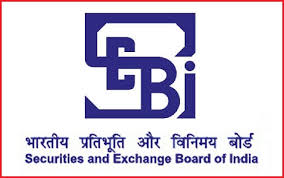 The Indian markets on Friday climbed to a two-month high after a rally in global equity markets in the wake of the European Central Bank (ECB) hinting at fresh stimulus measures. Most Asian markets ended up a little over one per cent, while Europe gained around two per cent.
The Indian markets on Friday climbed to a two-month high after a rally in global equity markets in the wake of the European Central Bank (ECB) hinting at fresh stimulus measures. Most Asian markets ended up a little over one per cent, while Europe gained around two per cent.
The BSE exchange’s benchmark Sensex rose 183 points or 0.7 per cent to 27,470.8, the highest since August 20. This was its fourth straight weekly advance. The National Stock Exchange’s Nifty rose 0.5 per cent or 43.75 points to 8,295.45.
Experts said the markets could continue the upward trajectory as the Chinese central bank cut interest rates and the reserve ratio to give a boost to its economy. The announcement by People’s Bank of China, after the close of Indian markets, further buoyed the European and US futures markets.
“Both the ECB and China stimulus announcements are positive for the market, at least in the short term,” said U R Bhat, managing director, Dalton Capital Advisors. “However, these are artificial doses and when the central banks withdraw the stimulus there could be a lot of pain.”
The latest round of monetary easing, the sixth since November last year, comes as China’s growth rate for the September quarter dipped below seven per cent for the first time since the 2008 global financial crisis.
“The move by China might have a positive impact on the market in the near term. But, it indicates the extent of problem in the Chinese economy. On the margin, it is negative. One cannot rule out an increase in volatility, going ahead,” said Tirthankar Patnaik, India strategist, Mizuho Bank.
The stimulus packages by central banks in China and Europe might support stocks in the immediate term but the market remains vulnerable to correction, following the sharp gains made over recent weeks, say experts.
So far in October, the Sensex has gained five per cent, on the back of foreign flows of nearly $900 million. The index had declined nearly six per cent and one per cent in August and September, respectively.
“The next sets of (companies’) results are expected to be weak. The market could react negatively if there is earnings disappointment,” said Bhat.
ITC, which gained 2.8 per cent, was the best performing Sensex stock on Friday. Other major gainers were Axis Bank and GAIL. Bharti Airtel fell 3.4 per cent, the most among Sensex companies. Vedanta, Larsen & Toubro and Maruti Suzuki fell a little over two per cent each.
Foreign investors net-bought shares worth Rs 230 crore, while domestic institutions were net sellers by Rs 156 crore on Friday, provisional data showed.
The Indian markets on Friday climbed to a two-month high after a rally in global equity markets in the wake of the European Central Bank (ECB) hinting at fresh stimulus measures. Most Asian markets ended up a little over one per cent, while Europe gained around two per cent.
The BSE exchange’s benchmark Sensex rose 183 points or 0.7 per cent to 27,470.8, the highest since August 20. This was its fourth straight weekly advance. The National Stock Exchange’s Nifty rose 0.5 per cent or 43.75 points to 8,295.45.
Experts said the markets could continue the upward trajectory as the Chinese central bank cut interest rates and the reserve ratio to give a boost to its economy. The announcement by People’s Bank of China, after the close of Indian markets, further buoyed the European and US futures markets.
“Both the ECB and China stimulus announcements are positive for the market, at least in the short term,” said U R Bhat, managing director, Dalton Capital Advisors. “However, these are artificial doses and when the central banks withdraw the stimulus there could be a lot of pain.”
The latest round of monetary easing, the sixth since November last year, comes as China’s growth rate for the September quarter dipped below seven per cent for the first time since the 2008 global financial crisis.
“The move by China might have a positive impact on the market in the near term. But, it indicates the extent of problem in the Chinese economy. On the margin, it is negative. One cannot rule out an increase in volatility, going ahead,” said Tirthankar Patnaik, India strategist, Mizuho Bank.
The stimulus packages by central banks in China and Europe might support stocks in the immediate term but the market remains vulnerable to correction, following the sharp gains made over recent weeks, say experts.
So far in October, the Sensex has gained five per cent, on the back of foreign flows of nearly $900 million. The index had declined nearly six per cent and one per cent in August and September, respectively.
“The next sets of (companies’) results are expected to be weak. The market could react negatively if there is earnings disappointment,” said Bhat.
ITC, which gained 2.8 per cent, was the best performing Sensex stock on Friday. Other major gainers were Axis Bank and GAIL. Bharti Airtel fell 3.4 per cent, the most among Sensex companies. Vedanta, Larsen & Toubro and Maruti Suzuki fell a little over two per cent each.
Foreign investors net-bought shares worth Rs 230 crore, while domestic institutions were net sellers by Rs 156 crore on Friday, provisional data showed.





 The Indian markets on Friday climbed to a two-month high after a rally in global equity markets in the wake of the European Central Bank (ECB) hinting at fresh stimulus measures. Most Asian markets ended up a little over one per cent, while Europe gained around two per cent.
The Indian markets on Friday climbed to a two-month high after a rally in global equity markets in the wake of the European Central Bank (ECB) hinting at fresh stimulus measures. Most Asian markets ended up a little over one per cent, while Europe gained around two per cent.